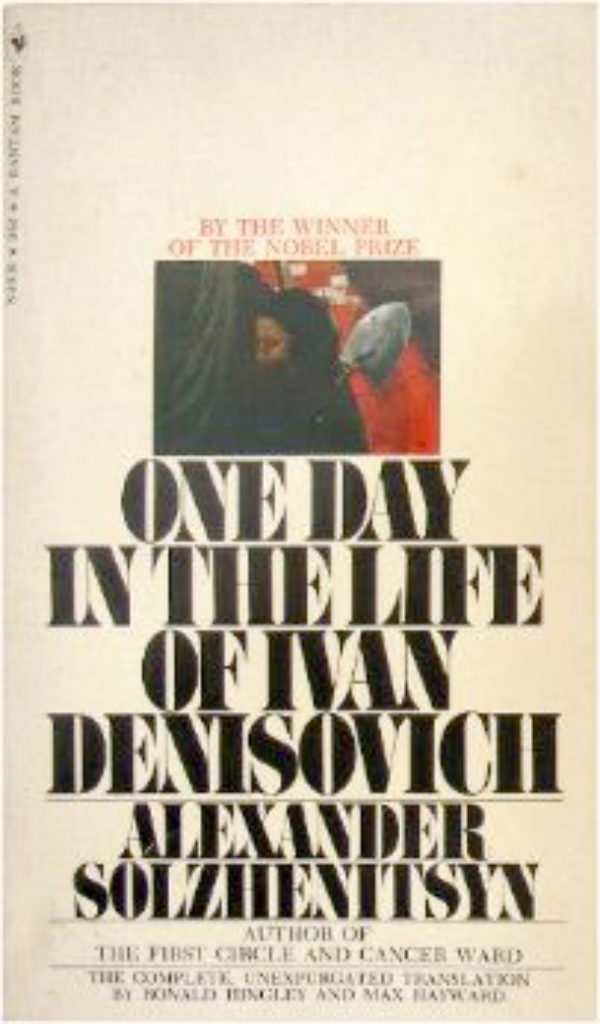One Day in the Life of Ivan Denisovich by Aleksandr Solzhenitsyn has been reviewed by Focus on the Family’s marriage and parenting magazine.

One Day in the Life of Ivan Denisovich by Aleksandr Solzhenitsyn has been reviewed by Focus on the Family’s marriage and parenting magazine.
Ivan Denisovich (Shukhov), like his fellow prisoners in the communist work camp, was wrongly imprisoned. This novel — based on some of Solzhenitsyn’s own experiences in similar camps — chronicles just one of the 3,653 days of Shukhov’s sentence. Through Shukhov’s eyes, readers feel the chill of sub-freezing conditions while prisoners lay brick, sense the hunger resulting from inadequate food rations and grasp the dehumanizing effect that life in these camps has on prisoners. Shukhov and members of his work gang watch out for each other like family, and each man seeks, in his own way, to discover some meaning and fulfillment in horrific conditions.
Alyoshka is a Baptist who is always reading the New Testament. He sometimes quotes Scripture about suffering for the cause of Christ. Alyoshka’s selfless giving and positive attitude despite his wrongful imprisonment baffle Shukhov — after all, confessing to be a Baptist entitles a man to 25 years of incarceration. Toward the end of the novel, Alyoshka and Shukhov have a conversation about God and heaven and hell (Shukhov says he doesn’t believe in the latter two.) Alyoshka says he’s glad to be in prison because it keeps his faith strong, like the apostle Paul, and he urges Shukhov to concentrate on the eternal rather than the temporal. Though Shukhov fails to see the purpose in his own suffering, he does suggest that a man cannot fail to believe in God upon hearing thunder in the skies.
None
Tyurin, the foreman of Shukhov’s gang 104, comes across as a tough, frightening figure until he reveals how he ended up in the camp. His transparency causes the gang to embrace him. At one point when Tyurin is standing up for his men, Shukhov says he’s like a father to them. Pavlo, the gang’s deputy foreman, is respected for his kindness. The men work hard for him because of this. The Soviet government’s inhumane treatment of these men — most imprisoned for no good reason — becomes increasingly clear as readers walk through a day in their lives.
B–tard, bulls—, d–n, h—, son of a b–ch and pr–k appear, along with varying forms of the f-word.
None
Get free discussion questions for this book and others, at FocusOnTheFamily.com/discuss-books.
Solzhenitsyn was awarded the Nobel Prize in Literature in 1970.
Communism: There is an overarching theme of communist tyranny that forces the events in this story to take place.
You can request a review of a title you can’t find at [email protected].
Book reviews cover the content, themes and worldviews of fiction books, not their literary merit, and equip parents to decide whether a book is appropriate for their children. The inclusion of a book’s review does not constitute an endorsement by Focus on the Family.